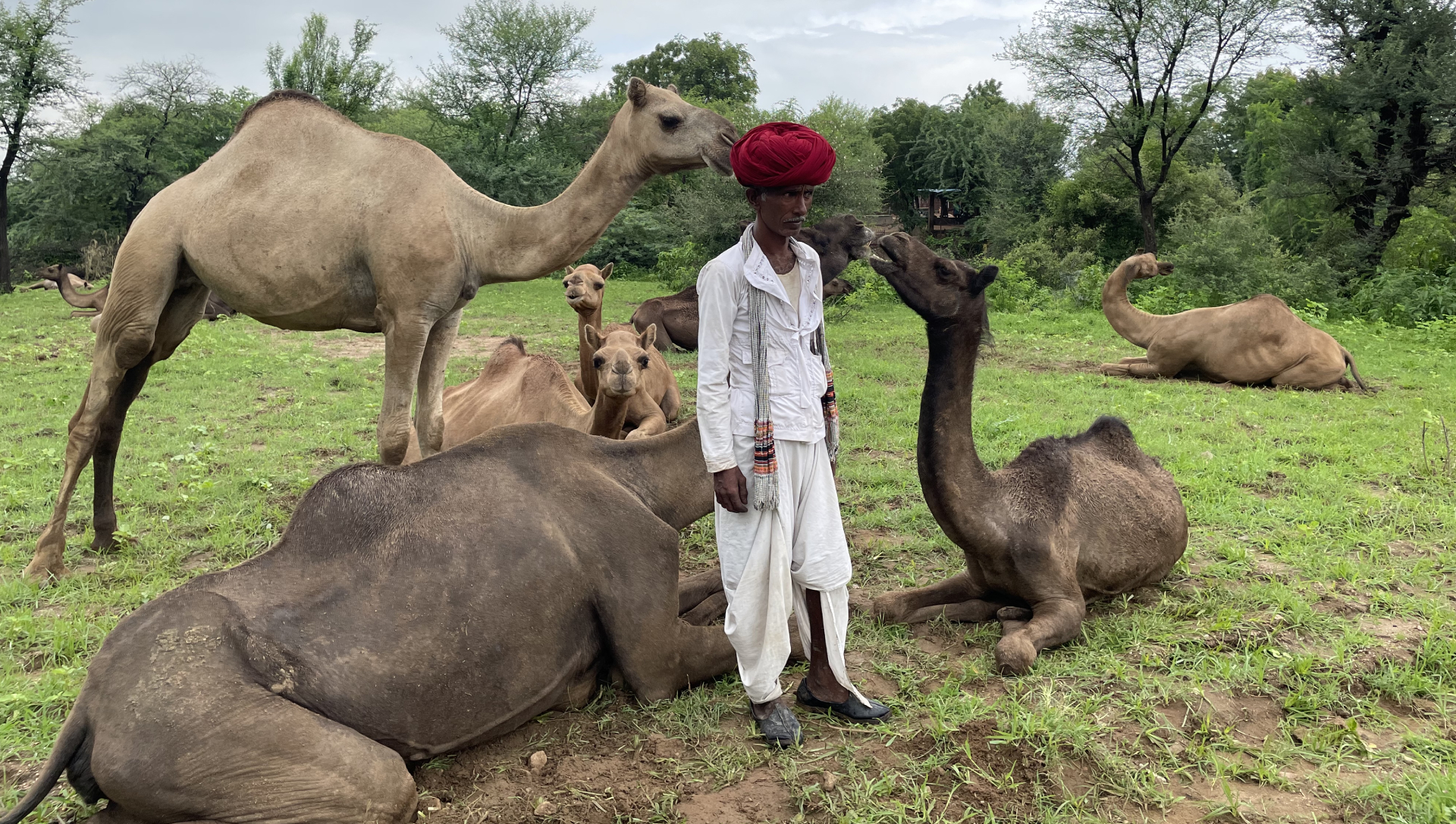JAIPUR: ‘Necessity is the mother of invention’, the well-known proverb holds true for the camel herders of Rajasthan as they bank on camel milk and its products for their very survival.
The Rajasthan government’s decision to ban the transportation of the animal, known as the desert ship, out of the state has put a question mark on the survival of camels and their herders. However, by switching to the business of selling milk, many herders appeared to have found a way to survive.
Lokhit Pashu Palak Sansthan (LPPS) at Joba, in Pali district of Rajasthan, is running their own dairy that sells camel milk and its products like cheese, butter etc through their company adroitly titled ‘Camel Charishma’.
Working with the Raika community members, Sansthan sells camel milk through their website to other parts of the country. Camel herders told The New Indian that switching to the business of camel milk is helping them tide over some difficult times following the ban.
Budha Ram Raika, a camel owner, said that he is making around ₹25,000 by selling camel milk. “As we cannot get good prices for the camels or transport them outside, it is important to have an alternate source. We don’t know any other mode of survival,” he said.
“One female camel gives 5 litres of milk per day that is sold for ₹150 to ₹200 per litre in the local market. For those outside Rajasthan, it is sold for ₹300 per litre, including the cost of packaging. Without the dairy, it would have been impossible to survive,” said Budha Ram.
Such is the lure that even camel owners who had sold off their animals are now shifting back to camel rearing.
Hanwant Singh, secretary of the LPPS, said that this is a useful way but challenges remain.
“We are getting orders from across the country. But due to short supply and high demand, we are not able to fulfil all the orders. Moreover, after packaging and transport, we are able to sell it for around ₹300 per litre outside of Rajasthan. Hence, it is not affordable for everyone,” Singh said.
“If the government takes up this project and ensures big investment, this will become a profitable business and more camel owners can benefit,” Singh suggested.
Hanwant Singh claimed that Camel milk is said to be very beneficial for children suffering from autism, women having anaemia, diabetic patients and many other diseases.
“During the lockdown, when transportation was stopped, a woman from Mumbai asked for help on social media for her autistic son who showed signs of improvement after consuming camel milk. After her request, a special package of camel milk was sent to her,” Singh said.
Ilse-Kohler-Rollefson, director of Camel Charishma, said that more research is necessary on this topic. “We are selling the products from our website on a small scale but if the government takes up this project and more research is conducted on the benefits of camel milk, our camel owners can be benefitted. This is an important subject that the government must take up on priority,” said Rollefson.










